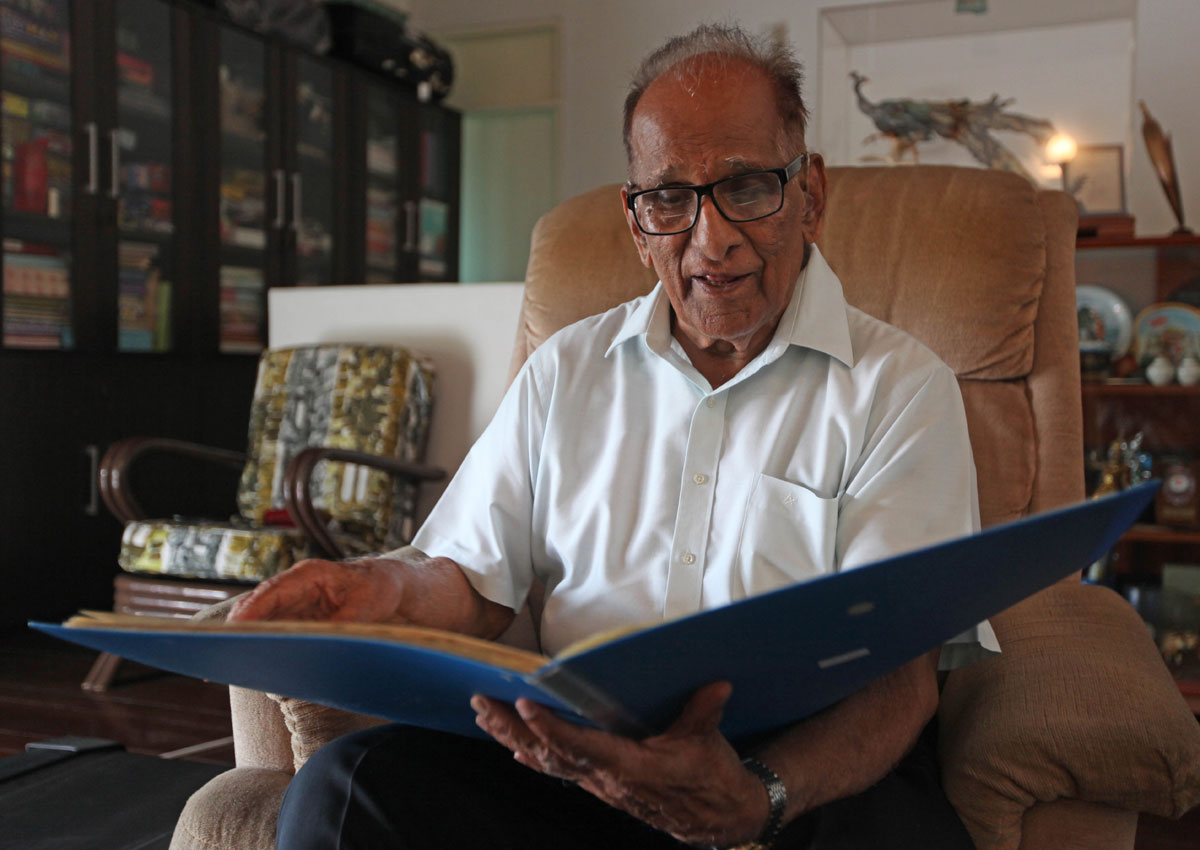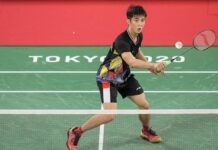IN A brief eulogy last week for an unusual man, a relative, V. K. Rajah, made an unusual move.
He asked the audience to rise, not to observe the usual one minute’s silence but to join him in applauding for a minute to celebrate a life not just “well lived but fully lived”.
Dr A. Vijiaratnam, who died this month aged 94, was an unusual man “whose like you will not see again,” said Rajah.
He was not only a sports legend – the only Singaporean who represented the country in four sports (football, hockey, cricket and rugby) – but was also successful in his professional life, as well as being a humanist who extended a helping hand whenever he was asked.
“What distinguished him from many others I have met was his intellectual curiosity and his desire to find out how people were doing, how things were being done and how to make a difference,” added Rajah.
The litany of portfolios that he held in his career, from being the chief engineer of the Port of Singapore Authority (PSA) to being the first pro-chancellor of Nanyang Technological University (NTU), did not prevent him from being a family man who made a difference to many lives and who even had time to tutor his grandchildren in mathematics, said another eulogist.
There is much to laud about the man, but this is not meant to be a catalogue of the accolades he received.
Two examples suffice: In September 1980, when the University of Singapore conferred the honorary doctor of laws on him – he is believed to be the first local engineer so honoured – its registrar Lu Sinclair wrote to say it was in recognition of his contribution to the engineering profession and his distinguished service at the PSA, where he served for 17 years before heading a consultancy subsidiary.
Secondly, after he served for a decade as chairman of Tamil Murasu, then-SPH chairman Lim Chin Beng wrote in 2005 that “under his guidance, TM was transformed from a struggling vernacular paper with a dwindling circulation to one which is profitable and more reader-friendly”.
Three aspects that were key to his success bear mention. Firstly, as son Vijendran remarked, he was a results-orientated man who believed in fast action.
“His office was not layered with documents or papers as expected of an office, because he would clear all papers that came before him promptly. This was his trademark – he had a clear table.
“He made similar speed work of the bills posted home as well.”
Secondly, what he did as a centre-forward in his footballing days he also reflected in his approach to work projects.
“When I shoot, I don’t aim for a precise corner,I just hit between the posts to score,” he once said.
Former PSA operations director Chung Kek Choo, in recalling this, said: “His was a practical approach, not overly optimistic but very realistic.”
Thirdly, he believed in employing people who were better than himself so that they would introduce new ideas and new ways of doing things.
“I always believe in hiring people who know more than I. What is the point of you and your staff knowing only the same thing? I had a very good team of engineers under me at the time,” he said, in Engineered For Success, a book about his life that is due to be published.
Among those he sought to recruit for the PSA was Dileep Nair, who interned there during his engineering undergraduate days in the early 1970s.
Nair, a scholar who studied abroad, went on instead to a distinguished public service career and is now Singapore’s non-resident ambassador to Ghana.
But sports, not engineering, was Vijiaratnam’s first love. By the time he completed his engineering studies in England on a Government scholarship and returned to Singapore, he had decided there would be no more hockey for him.
In his mid-30s, when he thought he was through with the game, he was picked for the Melbourne Olympics in 1956.
Singapore National Olympic Council vice-president Dr Tan Eng Liang said: “I always found him to be extremely friendly, approachable, humble and selfless.
“To be able to represent Singapore in four sports clearly shows what an exceptional athlete he was. He’s certainly a role model for athletes today, in the way he was able to juggle sports and a successful career.”
Role model he was, but the man was more than the sum of the parts. In September 1981, the Asian Wall Street Journal, in a commentary piece by Ian Gill titled Singapore Continues Search For President, said that Vijiaratnam, then chairman of PSA subsidiary Singapore Engineering Consultancy Services, was put forward as a possible candidate, alongside the likes of Wee Chong Jin, E. W. Barker and Punch Coomaraswamy.
vijayan@sph.com.sg

This article was first published on February 29, 2016.
Get a copy of The Straits Times or go to straitstimes.com for more stories.






